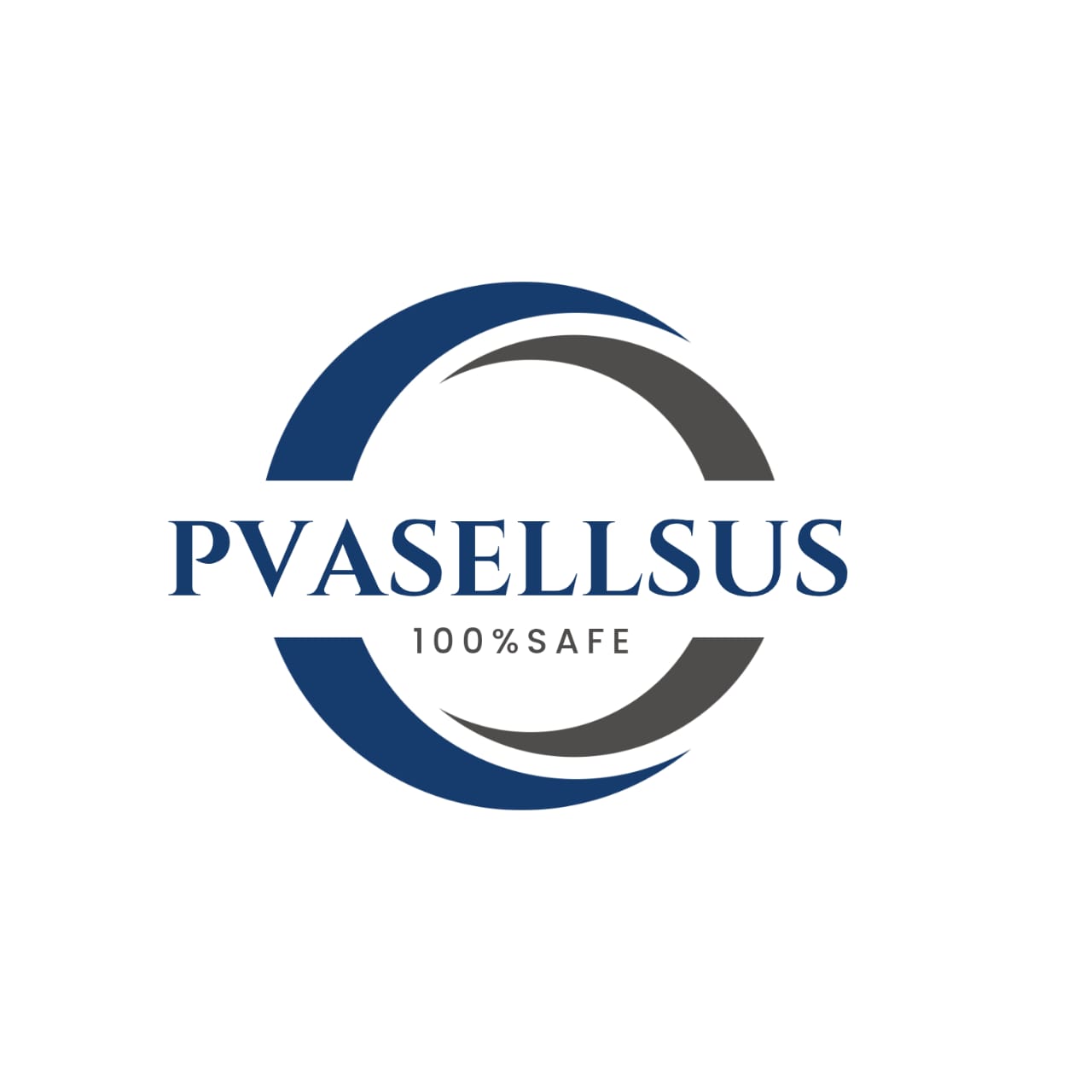Buy Old Github Accounts: Unlock Developer Insights
Are you looking to buy old GitHub accounts? You’re not alone.
Many developers and businesses are turning to this strategy to boost their online presence and gain a competitive edge.
But why are these accounts so valuable, and how can they benefit you? Imagine having instant access to a well-established profile with a rich history of contributions and followers.
This can save you time and amplify your credibility. We’ll explore the reasons behind the growing demand for old GitHub accounts and guide you on how to make the smartest purchase.
Get ready to unlock new opportunities and enhance your GitHub experience.
Benefits Of Buying Old Github Accounts
Old GitHub accounts often come with established reputations and valuable project histories. They can enhance credibility and trust in the developer community.
Additionally, these accounts might have followers who can help boost visibility for new projects or contributions.
Are you wondering why anyone would buy old GitHub accounts? These established accounts come with perks that can give your development projects a significant boost.
Owning an old GitHub account isn’t just about having a digital asset; it’s about acquiring a strategic advantage in your coding journey. Let’s dive into the benefits that make these accounts so valuable.
Access To Established Repositories
Imagine diving into a treasure trove of well-maintained repositories right from the start. Old GitHub accounts often come with access to repositories that have been nurtured over time.
These repositories might contain codebases for popular projects, useful libraries, or innovative tools that can save you countless hours. Why spend time reinventing the wheel when you can leverage existing code?
This access can help accelerate your project development and give you a headstart with proven solutions. It’s like having an experienced mentor guiding your work.
Enhanced Credibility And Trust
An old GitHub account can boost your credibility in the developer community. Accounts with a history often have followers, starred projects, and contributions that signify trustworthiness.
When you present your work, an established profile adds weight to your code. Think about how a seasoned developer’s account exudes confidence.
This can open doors to collaboration opportunities and make your work more appealing to potential employers or partners.
Wouldn’t you prefer to collaborate with someone whose work speaks for itself?
Leveraging Existing Developer Networks
Being part of an established network is priceless. Old GitHub accounts often have followers and connections built over time. These networks can lead to fruitful collaborations, insightful feedback, or even job offers.
Engaging with seasoned developers can provide you with valuable insights that you wouldn’t find in isolation. It’s like stepping into a community where people know you by reputation.
How would your projects benefit from a wider audience and expert advice? In the fast-paced world of coding, every advantage counts.
Buying an old GitHub account could be your ticket to faster development, increased credibility, and valuable connections. Are you ready to make your mark in the developer community?
Evaluating The Value Of Old Github Accounts
When considering the purchase of old GitHub accounts, evaluating their value is crucial.
These accounts can offer unique benefits, ranging from established reputations to extensive contributions.
But how do you determine if an account is worth the investment? Let’s dive into key factors that can help you assess the value of an old GitHub account.
Analyzing Repository Contributions
Start by examining the repositories associated with the account. Look at the quality and relevance of contributions.
Are there projects in your field that showcase expertise? High-quality code and innovative solutions can be a significant asset.
Consider the breadth of technologies used. Does the account show versatility in programming languages or frameworks?
This versatility can indicate a robust understanding of the tech landscape, potentially offering you valuable insights and resources.
Assessing Follower And Star Count
Followers and stars are more than just numbers; they reflect a level of trust and recognition in the GitHub community.
A high follower count can suggest influence and respect among peers. But it’s not just about quantity; look at the engagement quality.
Do the repositories receive meaningful comments or forks?
This indicates active community interest and collaboration. If you’ve ever struggled to gain traction with your projects, acquiring an account with strong community ties could be game-changing.
Understanding Past Project Impact
Evaluate the impact of past projects linked to the account. Have these projects contributed to significant innovations or solved pressing problems?
An account with impactful projects can enhance your credibility and open doors to new opportunities.
Consider how these projects align with your goals. Could they provide a foundation for your next big idea? Reflecting on the successes and failures of past projects can guide your future endeavors.
How might these insights shape your strategic direction?
Purchasing an old GitHub account isn’t just about acquiring code; it’s about investing in a legacy of knowledge and community influence.
By carefully evaluating these aspects, you can make an informed decision that supports your personal or professional growth.
Legal And Ethical Considerations
When considering buying old GitHub accounts, it’s crucial to understand the legal and ethical landscape surrounding such a decision.
While the allure of an established GitHub account might be tempting, especially if you’re looking to boost your credibility or gain access to a wider network, there are significant legal and ethical considerations that must be addressed.
These considerations not only impact your personal integrity but also your professional reputation.
Github’s Terms Of Service
GitHub’s Terms of Service are clear about account ownership. When you create a GitHub account, you agree to abide by these terms, which explicitly prohibit transferring or selling accounts.
Violating these terms can lead to account suspension or even permanent banning. Imagine investing in an account only to find it shut down due to non-compliance.
Before making any purchase, ask yourself: is risking your access and credibility worth it?
Ethical Implications Of Account Ownership
Ethically, buying an old GitHub account raises questions about authenticity and transparency.
As developers, the trust you build with your peers is invaluable. Using an account that doesn’t represent your genuine work can undermine this trust.
Can you genuinely claim ownership of projects and contributions made by someone else? Consider how this might affect your future collaborations and relationships within the developer community.
Risks Of Account Purchasing
Purchasing accounts comes with inherent risks. Aside from potential legal repercussions, you face technical risks.
Accounts could be compromised, leading to security vulnerabilities. Furthermore, sellers might not disclose all information, leaving you with an account that has a questionable history.
Weigh the risks: is an account’s past worth jeopardizing your future projects and reputation?
Reflect on these considerations before making a decision.
How do they align with your values and goals? In the world of GitHub, where collaboration and trust are key, ensuring your actions are both legal and ethical is paramount.
How To Purchase
Purchasing old GitHub accounts can be a strategic move for developers and tech entrepreneurs looking to leverage existing repositories, networks, and project histories.
However, the process isn’t as straightforward as buying a physical product. You need to navigate the nuances of finding reputable sellers, verifying the authenticity of the accounts, and negotiating favorable purchase terms.
Let’s dive into how you can effectively buy old GitHub accounts without falling into common pitfalls.
Identifying Reputable Sellers
Finding a trustworthy seller is crucial. Start by scouring online forums and communities where developers congregate.
Websites like Reddit, Stack Exchange, and specialized tech marketplaces often have sections where users buy and sell accounts.
Look for sellers with positive reviews and a history of successful transactions.
A seller who has been active in the community and received endorsements from other buyers is more likely to be reliable. Ask yourself: does this seller have a track record that instills confidence?
Be wary of overly attractive deals. If it sounds too good to be true, it probably is. Scammers often lure buyers with irresistible offers. Stay vigilant and prioritize reputation over price.
Verifying Account Authenticity
Ensure the account is legitimate before purchasing. A genuine old GitHub account should have a rich history of commits, repositories, and possibly some followers.
Ask the seller for access to view the account’s activity.
Check the account’s consistency. An authentic account will show a natural progression of activity over time. Sudden spikes or long periods of inactivity could be red flags.
Would you trust an account that doesn’t have a consistent history?
Use GitHub’s API or third-party tools to analyze the account’s data.
This step can provide insights into the account’s authenticity and historical usage, making sure you’re investing in something real and valuable.
Negotiating Purchase Terms
Once you’ve identified a reputable seller and verified the account’s authenticity, it’s time to negotiate the terms.
Start by discussing what is included in the sale—repositories, followers, or any ongoing projects.
Be clear about the payment terms. Will you use a secure payment method or escrow service to protect your transaction? Don’t shy away from asking for a trial period or a money-back guarantee if feasible.
What safeguards can you put in place to ensure a smooth transaction?
Finally, ensure that the transfer process is clearly outlined. How will the ownership be transferred, and what steps will both parties take to secure the transition?
A well-documented agreement can prevent future disputes and ensure peace of mind.
Maximizing The Use Of Acquired Accounts
Acquiring old GitHub accounts can offer many advantages. They provide access to established repositories and codebases.
But making the most of these accounts requires a plan. Understanding how to integrate and collaborate is crucial.
Integrating Into Current Projects
Old GitHub accounts can be valuable resources. They hold insights and ready-to-use tools. Start by reviewing the repository’s content. Identify parts that align with your current projects.
This integration can save time and effort in development.
Building On Existing Codebase
These accounts often come with established codebases. Explore these codes to see their structure and logic.
Use them as a foundation for new features. It gives a head start in the development process.
Collaborating With Original Contributors
Engage with the original contributors of the code. They can provide valuable insights and understanding.
Collaboration can lead to more efficient use of the account. It can also foster new partnerships and ideas.
Alternatives To Buying Old Accounts
While buying old GitHub accounts might seem like a shortcut to instant credibility, it’s not always the best or most ethical option. There are more sustainable and rewarding ways to build your GitHub reputation.
Let’s dive into some practical alternatives that can help you create a robust presence on GitHub without purchasing an account.
Building Your Own Github Presence
Creating your own GitHub presence from scratch may seem daunting, but it’s a journey filled with learning and growth. Start by setting up a clean and professional profile.
Add a photo, a concise bio, and links to your personal website or LinkedIn profile.
Commit to regularly updating your repositories with meaningful projects. These could be small personal projects, coding challenges, or even coursework.
Consistency in contributions shows dedication and helps build your portfolio over time.
Have you ever wondered what potential collaborators or employers are looking for? They want to see your problem-solving skills and creativity.
Make sure your repositories are well-documented and easy to navigate. This attention to detail can make a big difference in how others perceive your work.
Collaborating With Active Developers
Collaboration is key to growth in the developer community. Reach out to active developers on GitHub whose work you admire.]
Comment on their projects, ask questions, and offer constructive feedback.
Joining GitHub communities or forums related to your field of interest can also open doors to collaboration.
Look for opportunities to contribute to ongoing projects. This not only enhances your skills but also helps you build a network of like-minded individuals.
Have you considered participating in hackathons or coding events? These are excellent platforms to meet other developers and work on real-world projects together.
The relationships you build in these settings can lead to long-term collaborations and even job opportunities.
Utilizing Open Source Opportunities
Open source projects are a treasure trove of learning and growth opportunities. Identify projects that align with your interests and start contributing.
Even small contributions like fixing typos or improving documentation can make a difference.
Engage with project maintainers and express your interest in contributing more significantly.
This proactive approach can lead to mentorship opportunities and a deeper understanding of the project.
Have you ever contributed to an open source project and seen your name in the list of contributors?
It’s a rewarding experience that adds credibility to your GitHub profile. Plus, it shows potential employers your commitment to the developer community.
Instead of buying old accounts, focus on building your own GitHub journey. It’s a path filled with opportunities to learn, collaborate, and make meaningful contributions.
What will your GitHub story be?
Frequently Asked Questions
Why Buy Old Github Accounts?
Old GitHub accounts often have established reputations and history.
They can provide credibility and trust for new projects. Such accounts may have numerous followers and starred repositories, enhancing visibility.
Buying them can accelerate project growth and collaboration opportunities, saving time in building a new account from scratch.
Are Old Github Accounts Safe To Purchase?
Purchasing old GitHub accounts can be safe if done properly. Ensure the account has no history of suspicious activity.
Verify its authenticity and ownership transfer process. Always buy from reputable sources. Proper precautions can mitigate risks and protect your investment in the account.
How To Verify An Old Github Account?
To verify an old GitHub account, check its activity and followers.
Review its repositories and contributions history. Confirm the seller’s credentials and ownership transfer process. Ensure the account has no violations.
Verification ensures you purchase a legitimate and valuable GitHub account.
What Benefits Do Old Github Accounts Offer?
Old GitHub accounts offer several benefits. They often have established reputations and followers.
This can increase visibility for your projects. They can also provide credibility and trust within the developer community. Utilizing an old account can accelerate collaboration and networking opportunities.
Conclusion
Purchasing old GitHub accounts can boost your project credibility. They offer established reputations.
This can help attract more collaborators and support. Always choose reliable sources when buying accounts.
Ensure the accounts meet your specific needs. Remember, quality matters more than quantity.
Building trust with your audience is vital. Old accounts can offer a head start. But diligence is crucial.
Research thoroughly before making any decisions. Protect your projects and investments wisely. With careful selection, old GitHub accounts can enhance your development journey.
Choose wisely and see positive results.






Reviews
There are no reviews yet.